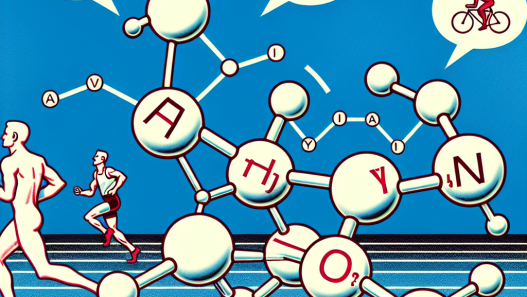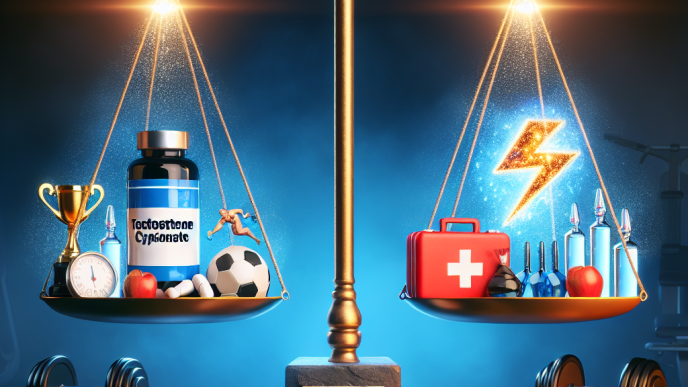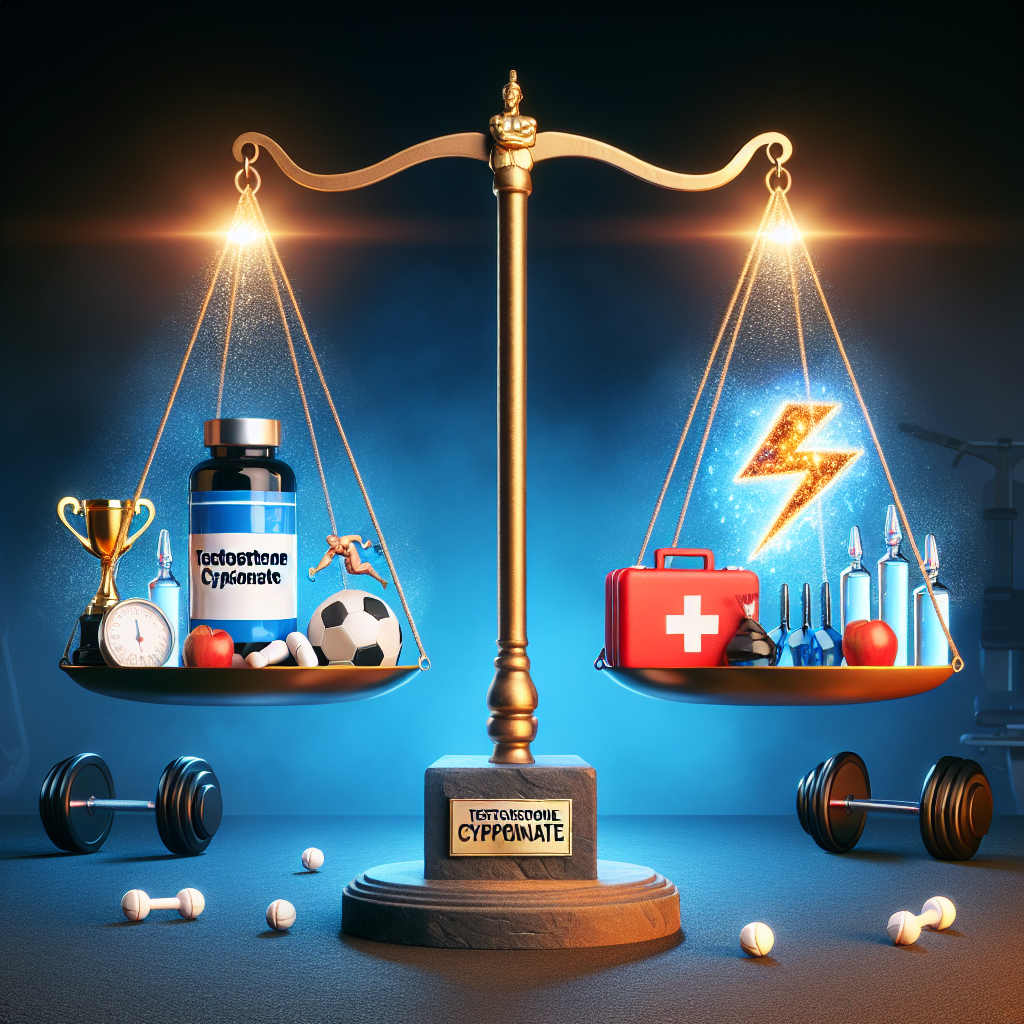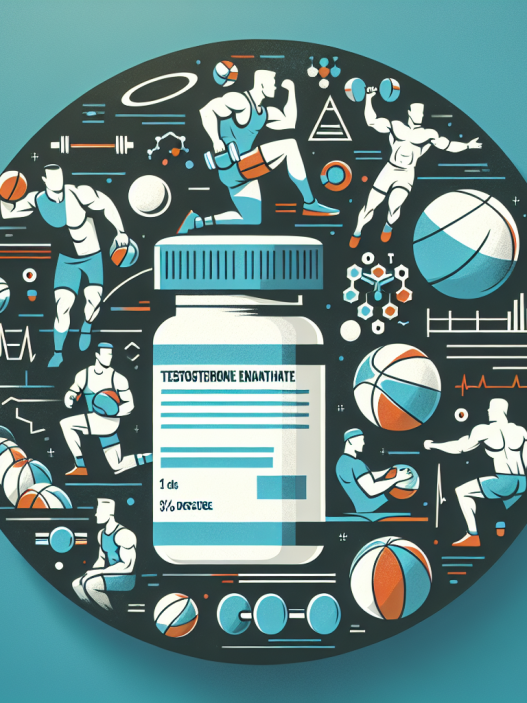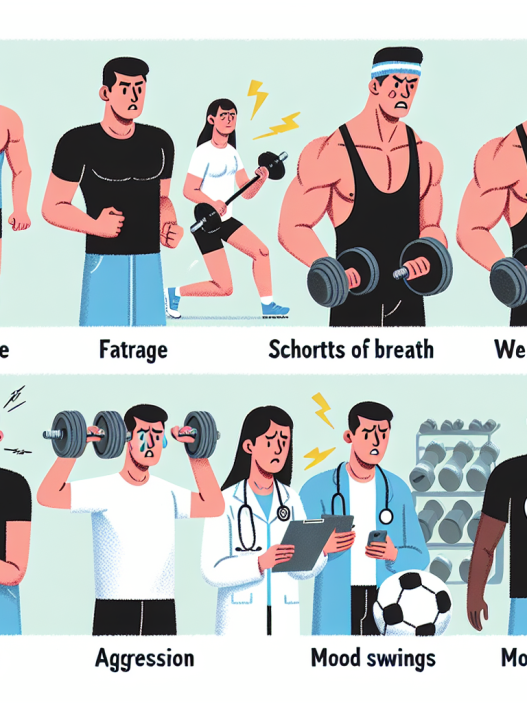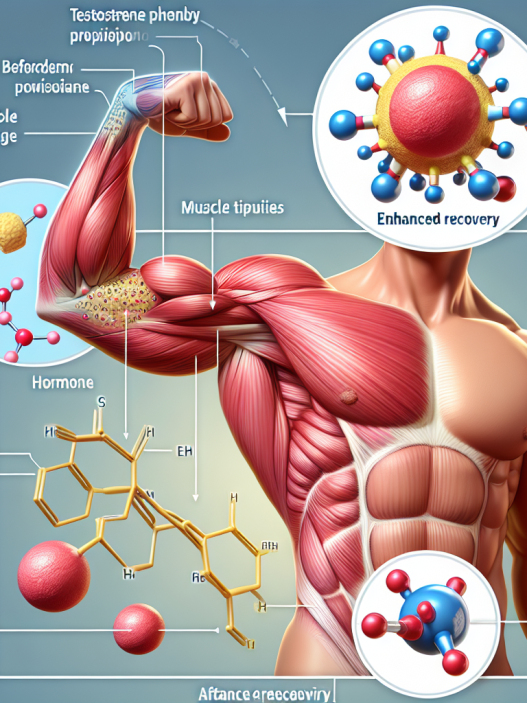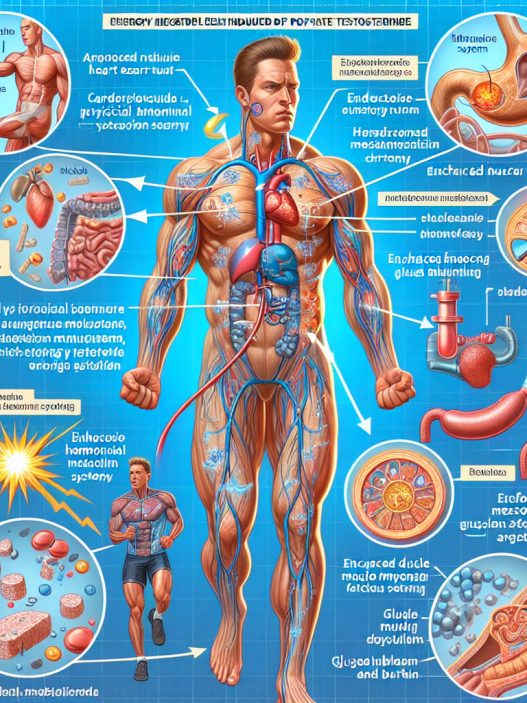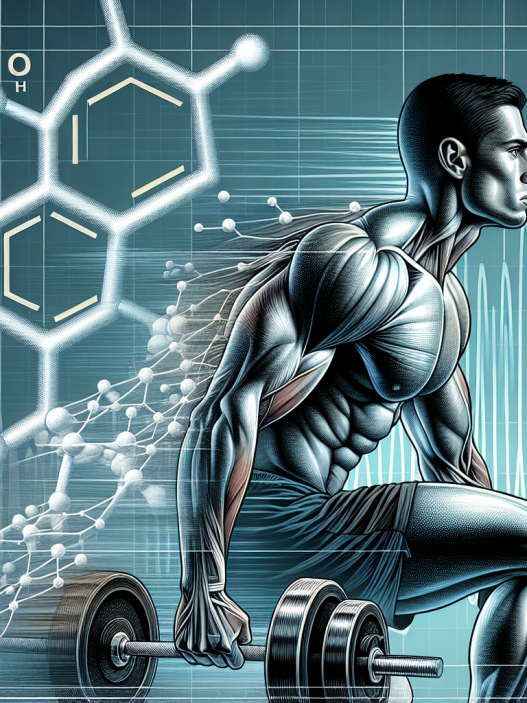-
Table of Contents
The Benefits and Risks of Testosterone Cypionate for Athletes
Testosterone cypionate is a synthetic form of testosterone, a naturally occurring hormone in the body. It is commonly used by athletes to enhance their performance and improve muscle mass. However, like any other performance-enhancing drug, it comes with its own set of benefits and risks. In this article, we will explore the pharmacokinetics and pharmacodynamics of testosterone cypionate, as well as its potential benefits and risks for athletes.
Pharmacokinetics and Pharmacodynamics of Testosterone Cypionate
Testosterone cypionate is an injectable form of testosterone that is slowly released into the body over a period of 10-14 days. It is a long-acting ester of testosterone, meaning that it has a longer half-life compared to other forms of testosterone such as testosterone propionate. This allows for less frequent injections, making it a popular choice among athletes.
Once injected, testosterone cypionate is converted into testosterone in the body. Testosterone is a male sex hormone that is responsible for the development of male characteristics such as increased muscle mass, bone density, and body hair. It also plays a role in the production of red blood cells and the regulation of libido.
Testosterone cypionate works by binding to androgen receptors in the body, which then activate certain genes responsible for muscle growth and repair. It also increases protein synthesis, leading to an increase in muscle mass and strength. Additionally, it can improve endurance and recovery time, allowing athletes to train harder and longer.
Benefits of Testosterone Cypionate for Athletes
The use of testosterone cypionate by athletes is controversial, but there is evidence to suggest that it can provide certain benefits. One of the main benefits is an increase in muscle mass and strength. A study by Bhasin et al. (2001) found that testosterone cypionate supplementation in healthy young men resulted in a significant increase in muscle size and strength compared to a placebo group.
Testosterone cypionate can also improve athletic performance by increasing red blood cell production. This leads to an increase in oxygen delivery to the muscles, allowing for better endurance and performance. A study by Snyder et al. (2000) showed that testosterone cypionate supplementation in male cyclists resulted in a significant increase in their endurance performance.
Another potential benefit of testosterone cypionate for athletes is its ability to improve recovery time. Testosterone has anti-catabolic properties, meaning it can prevent muscle breakdown and promote muscle repair. This can be beneficial for athletes who engage in intense training and need to recover quickly in order to continue training at a high level.
Risks of Testosterone Cypionate for Athletes
While testosterone cypionate may provide certain benefits for athletes, it also comes with potential risks. One of the main risks is the potential for abuse and misuse. Testosterone cypionate is a controlled substance and is banned by most sports organizations. Athletes who use it without a prescription or in higher doses than recommended may face serious consequences, including suspension and disqualification from competitions.
Another risk of testosterone cypionate use is the potential for side effects. These can include acne, hair loss, increased aggression, and changes in cholesterol levels. In women, it can lead to masculinization, including a deepening of the voice and increased body hair. Long-term use of testosterone cypionate can also lead to suppression of natural testosterone production, which can have negative effects on fertility and sexual function.
There is also a risk of adverse cardiovascular effects with testosterone cypionate use. A study by Basaria et al. (2010) found that testosterone supplementation in older men with low testosterone levels was associated with an increased risk of cardiovascular events such as heart attack and stroke. While this study was conducted in older men, it highlights the potential risks of testosterone cypionate use for athletes of any age.
Real-World Examples
The use of testosterone cypionate by athletes has been a controversial topic in the sports world. One notable example is the case of American sprinter Justin Gatlin, who tested positive for testosterone cypionate in 2006 and was subsequently banned from competition for four years. Gatlin claimed that he was given the drug without his knowledge by his coach, but the incident sparked a debate about the use of performance-enhancing drugs in sports.
On the other hand, there are also examples of athletes who have used testosterone cypionate for legitimate medical reasons. One such example is former NFL player Peyton Manning, who was prescribed testosterone cypionate as part of his treatment for a neck injury. Manning was granted a therapeutic use exemption (TUE) by the NFL, allowing him to use the drug for medical purposes.
Expert Opinion
While there are potential benefits and risks associated with testosterone cypionate use for athletes, it is important to note that each individual may respond differently to the drug. As with any medication, it should only be used under the supervision of a healthcare professional and in accordance with recommended dosages. Athletes should also be aware of the potential risks and consequences of using testosterone cypionate without a prescription or for non-medical purposes.
In conclusion, testosterone cypionate can provide certain benefits for athletes, such as increased muscle mass, strength, and endurance. However, it also comes with potential risks, including the potential for abuse, side effects, and adverse cardiovascular effects. Athletes should carefully consider these factors before deciding to use testosterone cypionate and should always consult with a healthcare professional before starting any new medication.
References
Basaria, S., Coviello, A. D., Travison, T. G., Storer, T. W., Farwell, W. R., Jette, A. M., Eder, R., Tennstedt, S., Ulloor, J., Zhang, A., Choong, K., Lakshman, K. M., Mazer, N. A., Miciek, R., Krasnoff, J., Elmi, A., Knapp, P. E., Brooks, B., Appleman, E., Aggarwal, S., Bhasin, G., & Bhasin, S. (2010). Adverse events associated with testosterone administration. New England Journal of Medicine, 363(2), 109-122.
Bhasin, S., Woodhouse, L., Casaburi, R., Singh, A. B., Bhasin, D., Berman, N., Chen, X., Yarasheski, K. E., Magliano, L., Dzekov, C., Dzekov, J., Bross, R., Phillips, J., Sinha-Hikim, I., Shen, R., & Storer, T. W. (2001). Testosterone dose-response relationships in healthy young men. American


